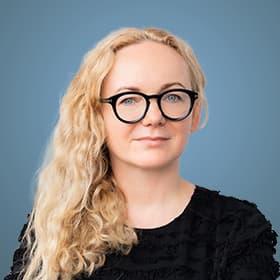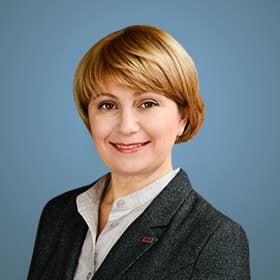On 19–20 June 2025, the BDO Romania office in Bucharest hosted the BDO Global Public Sector, Healthcare and Nonprofit Conference — a dynamic gathering of leaders and experts from across the BDO network. From AI-driven public services to cross-border collaboration, the two-day event highlighted the BDO’s deep and evolving role as a trusted advisor to the public sector, extending well beyond auditing.
From Scandinavia to the Asia-Pacific region, from Western Europe to Ukraine and beyond, the sessions demonstrated how BDO’s local experience and global coordination create tangible value for ministries, municipalities, donor organisations and social infrastructure. With over a dozen sessions spanning regions and sectors, the conference offered an overview of how BDO firms are tackling the world’s most pressing challenges together.
Public sector clients today face mounting pressures: climate adaptation, digital transformation, aging population and the push for transparency. BDO is responding with a unified, cross-border approach leveraging its global presence, extensive technical expertise and local connections.
A pre-conference gathering: insights and strategies for Ukraine's Recovery
Four representatives from BDO in Ukraine participated in the conference: CEO Vira Savchenko, Head of Advisory Andrii Borenkov, Business Development Executive Olga Korniichenko and Audit Partner Liliya Chernysh. Prior to the main event, BDO in Ukraine organised a meeting centred on Ukraine’s recovery, during which the team discussed key topics relating to Ukraine’s ongoing reconstruction efforts, as well as the role of the public sector in driving change.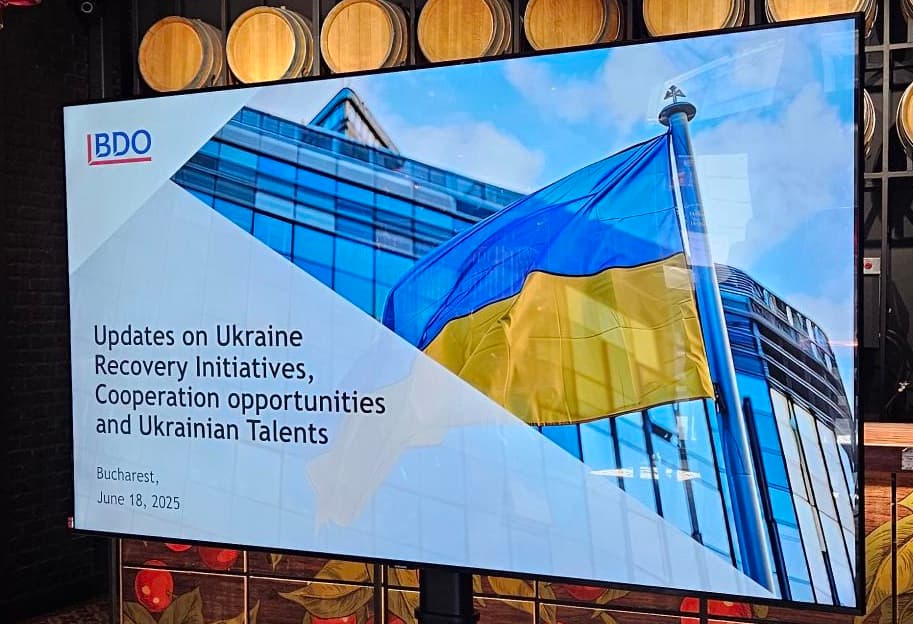
What have we talked about?
- A deep dive into the current socio-economic challenges facing Ukraine, with insights on how these affect the recovery process.
- Focus on the scaling of recovery projects, highlighting how certain initiatives have the potential to be replicated in other regions of Ukraine and beyond.
- International perspectives on Ukraine’s recovery efforts and how they fit into the broader goals of the international community.
- The priorities to be set in the coming years for sustainable and inclusive growth in Ukrainian municipalities.
- How BDO’s auditing capabilities ensure that reconstruction funds are used effectively and responsibly.
- Strategies that can be applied globally, drawing on Ukraine’s recovery experience.
- Approaches to enhancing workforce capacity and engagement through public sector training, development and accreditation programs.
During the meeting, BDO announced the official launch of the Ukrainian Task Force (UTF) — a strategic initiative led by BDO Global Public Sector Leadership and operationally driven by BDO in Ukraine. The UTF’s mission is to support the public sector reforms, reconstruction and economic revitalisation of Ukraine by combining global expertise with local insights.
Public sector trends
As governments around the world continue to address increasingly complex public sector challenges, the BDO Public Sector Conference highlighted several key trends that will shape the future of governance and service delivery. Among these are:1. Increasing demand for digital transformation
Governments worldwide are accelerating their digital transformation to enhance service delivery and operational efficiency. This includes leveraging AI, automation and data analytics to optimise decision-making processes and improve citizen engagement. Digital government initiatives are expected to grow, with more governments looking to modernise legacy systems and improve their cybersecurity to safeguard critical data.
2. Focus on sustainability and climate action
Sustainability is no longer just an environmental concern, it is now embedded in public sector strategy, with governments worldwide pushing for green policies and climate-positive goals. The circular economy is gaining traction, with initiatives to reduce waste and promote resource efficiency. Public sector organisations are being urged to reduce their carbon footprint and increase ESG (Environmental, Social, Governance) reporting.
3. Rising donor influence and global aid landscape
With the ongoing geopolitical shifts and economic pressures, global donors are focusing more on funding long-term development goals rather than short-term projects. There has been a notable shift towards funding projects that address systemic issues in education, healthcare and governance. Public sector entities are encouraged to embrace donor-funded initiatives that align with the sustainable development goals (SDGs) and impact measurement.
4. AI integration in healthcare and public services
The AI revolution is transforming healthcare, with governments and healthcare providers increasingly leveraging AI to improve patient outcomes, reduce costs and optimise the allocation of resources. This trend is not just about adopting AI, but also about fostering collaboration between healthcare providers and technology partners to create scalable AI solutions that benefit patients and public systems alike.
5. Public-private partnerships (PPP) for infrastructure development
The global infrastructure gap continues to grow, and governments are increasingly turning to public-private partnerships (PPPs) to close it. This trend is particularly relevant in energy, water and transportation sectors, where private sector investment is required to meet public demand. PPPs are also considered essential for providing resilient and sustainable urban infrastructure capable of adapting to climate change.
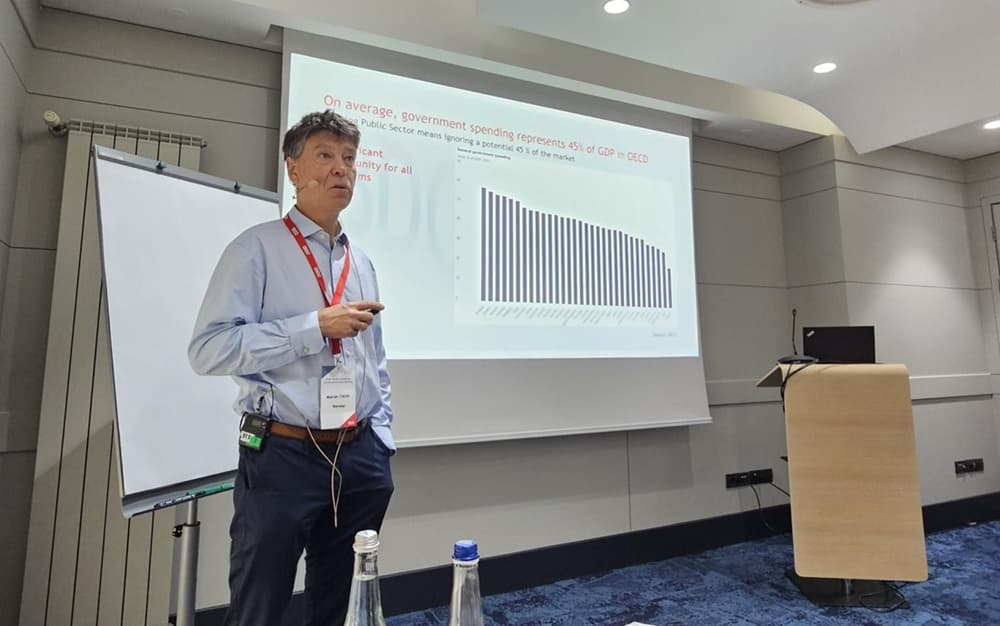
Global donor services
During a session on Global Donor Services (GDS), Mark Henderson, Partner & Chair of Global Donor Services at BDO UK, discussed how BDO’s international network supports donor-funded programmes worldwide, ranging from UN initiatives to EU recovery projects. Through cross-border collaboration, BDO firms across multiple regions leverage their local expertise to deliver solutions tailored to the unique needs of donor-funded projects.The GDS team at BDO has grown into a network of over 700 specialists, delivering more than 5,000 assignments annually across 170+ countries. This include project audits, ESG consulting, forensic investigations and digital advisory services. In 2024 alone, BDO secured major contracts with organisations such as the European Commission, UNHCR, the World Bank, etc. Regional hubs and service groups, such as ESG, Digital and Forensic, enable BDO to respond quickly and consistently to donor needs.
The donor landscape, however, is shifting. Geopolitical changes, such as the U.S. administration’s rollback of international aid and environmental commitments, have led to reduced funding and increased uncertainty. Aid spending by the Organisation for Economic Co-operation and Development (OECD) dropped by 7% in 2024 and is projected to fall by a further 15% in 2025. Nevertheless, BDO sees opportunity in assisting clients with adaptation, whether through restructuring, digital transformation or enhanced risk management.
A notable example of internal collaboration follows BDO’s work on UNICEF’s global sustainability consulting contract. The group includes members from BDO India, East Africa, the UK, Italy, Norway, Argentina and South Africa. One of the group’s early successes was supporting BDO South Africa with a sustainability reporting engagement for the Industrial Development Corporation of South Africa, demonstrating the value of coordinated expertise across regions.
By bringing together global resources, BDO can scale its services and share best practices across borders, ensuring that donors’ investments in global development are transparent, efficient and impactful.
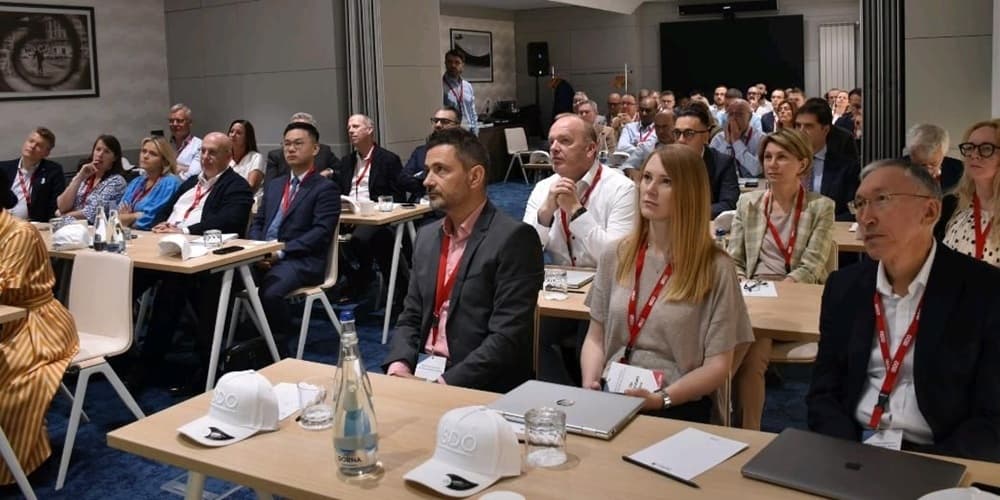
Healthcare innovation and AI integration
A significant portion of the conference was dedicated to healthcare innovation, focusing on how AI is transforming public health and social care systems. Dr. Nicola Collyer from the BDO UK shared insights into the work of the BDO’s Global Healthcare Thought Leadership Working Group and their mission to drive innovation and best practices in the healthcare sector. From AI-powered medication management in the US to co-created digital tools in the Netherlands and cross-national care research in Europe, BDO is helping to shape the future of healthcare.A key approach to innovation involves embedding AI in clinical and operational workflows to support decision-making, reduce administrative burdens and improve patient outcomes. This includes predictive analytics for early intervention, automation of routine tasks and the use of digital platforms to enhance care coordination. BDO’s global healthcare teams emphasise the importance of interoperability, data governance and responsible AI practices to ensure that the adoption of technology is both ethical and effective.
In the Netherlands, BDO developed an AI tool for the disability care sector through a hackathon involving three major care providers. The tool uses AI algorithms to match client care requests with provider services, streamlining the registration and placement process. This co-creation approach has already generated strong interest from over 30 care organisations and is being scaled up further in 2025.
More broadly, BDO Austria has launched a global research initiative to explore sustainable care models, focusing on financing strategies and innovative delivery approaches. With participants from Germany, Switzerland, Denmark and the Netherlands, the project aims to position BDO as a global competence hub for care.
BDO’s commitment to AI-driven healthcare solutions supports digital health systems and ensures that data privacy and security concerns are addressed, safeguarding patient information while improving overall health system efficiency.
CSRD reporting as an opportunity to enhance transparency in the Public Sector
Another major theme discussed was the CSRD (Corporate Sustainability Reporting Directive) and its implications for public sector. Tina-Irene Luggens Amundsen, Head of Sustainable Communities Services at BDO Norway, and Job Terlingen, Audit Partner at BDO Netherlands, emphasised that the CSRD and Voluntary Sustainability Reporting for SMEs (VSME) present a strategic opportunity for public sector entities, healthcare providers and not-for-profit organisations. As sustainability expectations rise, these sectors are under increasing pressure to demonstrate transparency, accountability and alignment with environmental and social goals.Publicly owned entities, such as municipal companies and state-funded institutions, are not only subject to reporting requirements but also play a critical role in shaping regional development strategies and procurement practices. By adopting CSRD-aligned reporting, these organisations can strengthen stakeholder trust, improve decision-making and prepare for future regulatory changes. Integrating sustainability metrics into budgeting, procurement and climate adaptation strategies can also enhance operational resilience and public value.
A key tool in this transformation is the Double Materiality Analysis (DMA), which helps organisations to identify their most significant impacts, risks and opportunities. Developed collaboratively by BDO firms in the Netherlands, Norway, Belgium, Germany and Italy, the DMA methodology supports strategic prioritisation and ensures alignment with the European Sustainability Reporting Standards (ESRS). It also enables public sector bodies to communicate their sustainability efforts using the same language and frameworks as the private sector.
Assurance of selected sustainability KPIs, using standards such as ISAE 3000 or the forthcoming ISSA 5000, further enhances the credibility of reporting. For BDO, this represents an increasing market opportunity to support clients in navigating CSRD requirements, building their internal capacity and embedding sustainability into core of their operations. As the public sector evolves, CSRD reporting is not just a compliance exercise, it’s a catalyst for transparency, trust and transformation.
Ukraine as one of the focal points for global collaboration
Andrii Borenkov, Head of Advisory at BDO in Ukraine, presented compelling opportunities for international collaboration with Ukraine. He emphasised the critical role that global partnerships can play in the country’s recovery and development. He introduced three open tenders from international donors and international financial institutions (IFIs), highlighting projects in which BDO firms across the network can combine their expertise and resources to support Ukraine’s reconstruction efforts. These initiatives span infrastructure, governance and institutional reform —areas where BDO’s cross-border capabilities can deliver high-impact results.Leveraging BDO’s global network enables firms to collaborate on complex, multi-sectoral projects requiring both local insight and international delivery standards. This approach aligns with BDO’s broader commitment to public sector transformation and sustainable development.
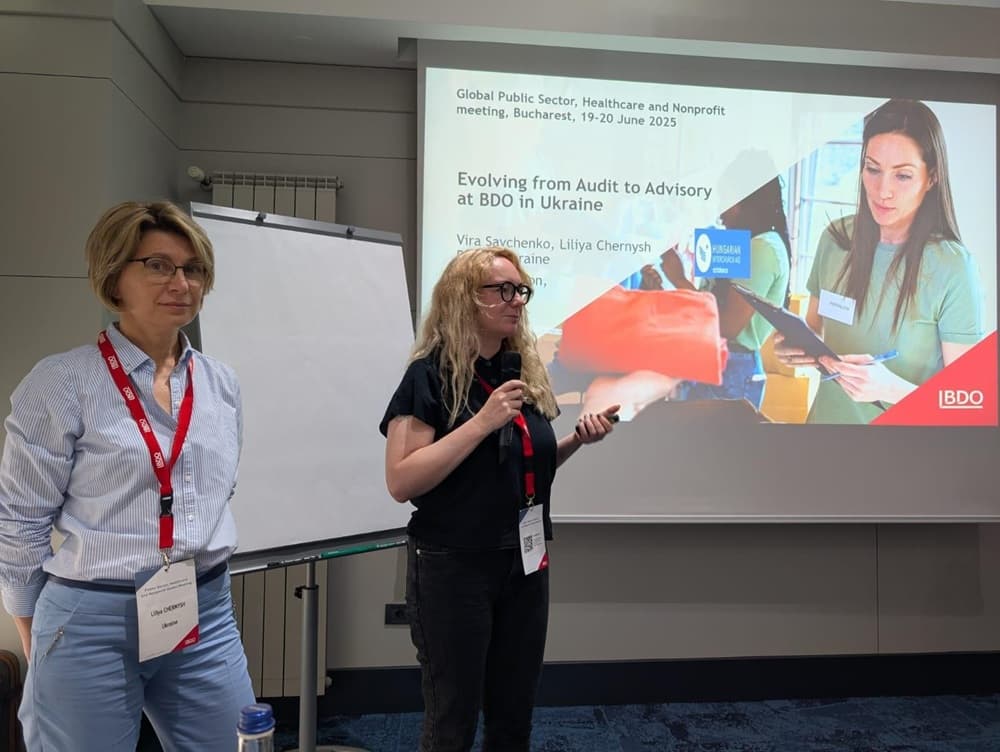
Following this, Vira Savchenko and Liliya Chernysh then expanded on this vision by outlining how BDO in Ukraine is deepening its advisory role within the public sector. They described how the firm is working closely with ministries, municipalities, and state-owned enterprises to support reforms in governance, digital transformation, and institutional capacity building. These efforts are positioning BDO in Ukraine as a trusted advisor in shaping the country’s post-war future.
Together, these contributions reflect a strategic opportunity for BDO firms to engage in meaningful, purpose-driven work that supports Ukraine’s recovery while also strengthening the network’s presence in donor-funded advisory services.
Throughout the conference, it became evident that BDO’s role in public sector transformation is expanding and becoming more significant. From cross-border collaborations that pool resources and expertise from around the world, to digital infrastructure projects that empower governments and municipalities, BDO’s global network is doing more than just responding to public needs — it is shaping the systems that deliver them.
BDO is committed to supporting Ukraine’s recovery through public sector reforms, digital transformation and capacity building. With our combination of global expertise and local insight, we’re helping shape the future of Ukraine. Contact us to explore how BDO in Ukraine can help you navigate the complexities of recovery and transformation.
